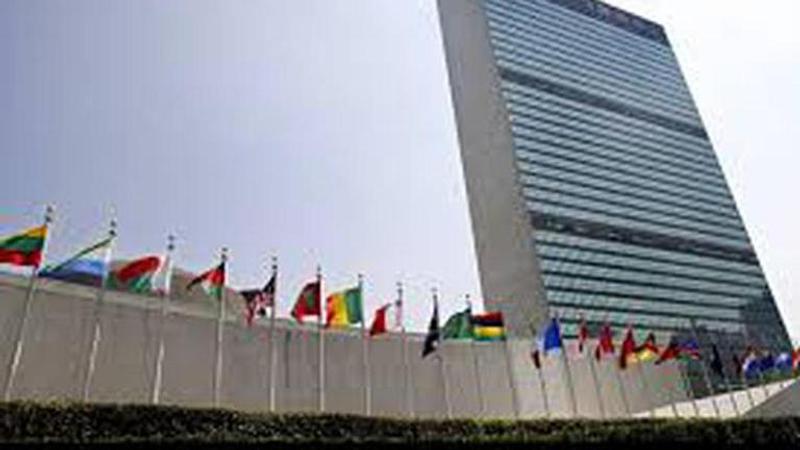Published 11:12 IST, July 3rd 2020
COVID-19: UN highlights Buddha's message of solidarity and service in belated Vesak commemoration
Lord Buddha's message of solidarity and service to others is more important than ever, UN chief Antonio Guterres has said, affirming that only through global cooperation can the nations deal with the economic and social consequences of the COVID-19 pandemic.

Lord Buddha's message of solidarity and service to others is more important than ever, UN chief Antonio Guterres has said, affirming that only through global cooperation can the nations deal with the economic and social consequences of the COVID-19 pandemic.
The Secretary General’s remarks came during a belated commemoration of the International Day of Vesak. The commemoration of this year’s Vesak Day, which marks the birth, enlightenment and passing of Lord Buddha, was postponed from May due to the COVID-19 pandemic.
Buddha’s teachings can also help remind nations and people of the unity that is needed to meet the COVID-19 challenge, he said on Thursday.
Citing a sutra, "Because all living beings are subject to illness, I am ill, as well", Guterres said this timeless message of solidarity and service to others is more important than ever.
"It is only by combining our energies and expertise that we can address the tremendous fragilities in our world today. Only through international cooperation will we ease the economic and social consequences of the crisis, which are pervasive, but place particular burden on the world's most vulnerable people and countries,” he said.
The UN chief said that it is only by strengthening bonds across society that "we will recover better and build a healthier, more inclusive, sustainable, resilient and equitable world”.
India’s Permanent Representative to the UN Ambassador T S Tirumurti said during the virtual commemoration by Sri Lanka and Thailand that the COVID-19 pandemic had brought untold suffering into people’s lives.
“We now, more than anytime else, should remember the Four Noble Truths of Buddhism, which teach us to bring the cycle of Dukka or Suffering to an end. As the Buddha said ‘No one saves us but ourselves,” he said.
Tirumurti highlighted he importance of embracing the Buddhist values of compassion, service to humanity, peace and non-violence, equality and equanimity and the middle-way practised for 2,600 years.
“These values, one way or another, find or should find resonance in the Charter and work of the United Nations in a world where forces dividing us are numerous. As the Buddha said 'In the sky, there is no distinction of East and West',” he said.
Tirumurti also recalled that he had overseen the making and gifting by India of the replica of the Buddha of Sarnath to Sri Lanka, assisting in erecting the replica of the 1st century Torana Gate of the Sanchi Stupa in Malaysia and in India’s renovation of priceless Buddhist heritage sites in many parts of the world.
Guterres underscored that the sense of shared fate and collective compassion is both the spirit of the Buddha and the animating force of the Charter of the United Nations, which just marked its own 75th birthday.
President of the General Assembly Tijjani Muhammad-Bande said the COVID-19 pandemic was putting the world under enormous strain and affecting everyone’s life.
"We are facing a global health crisis unlike any other in the 75-year history of the United Nations and it affects all of us. In times of great anxiety, faith can be a significant source of comfort and community resilience,” he said, adding that the Buddhist teachings and guided practices, such as “give, even if you have a little”, can be a balm for those grappling with the pandemic today.
Muhammad-Bande said this year’s Vesak Day commemoration reminded all to uphold the values of kindness, compassion and empathy.
“May this commemoration serves as occasion to remind ourselves of the importance of tolerance, mutual respect and understanding - that are enshrined in the Buddhist teachings,” he said.
Vesak, the Day of the Full Moon in the month of May, is the most sacred day to millions of Buddhists around the world. It was on the Day of Vesak two and a half millennia ago, in the year 623 B.C., that the Buddha was born. It was also on the Day of Vesak that the Buddha attained enlightenment and passed away in his 80th year.
In 1999, the UN General Assembly adopted a resolution in which it recognised the International Day to acknowledge the contribution that Buddhism, one of the oldest religions in the world, has made for over two and a half millennia and continues to make to the spirituality of humanity.
Updated 11:12 IST, July 3rd 2020




